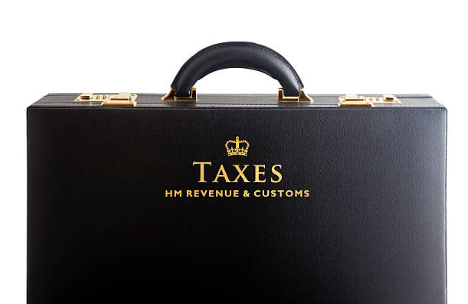A year end can be a daunting undertaking for first-time limited company directors, but with our comprehensive checklist you’ll know exactly what you need to do.
What is a year end?
A ‘year end’ is accountancy slang for the day your company’s financial period ends. It’s also the day the clock starts ticking for a limited company to send certain documents to HMRC and Companies House.
If the financial period you’re reporting on started on or after 1st January 2016, the snappily titled Financial Reporting Standard 105 (FRS 105) applies, and you’ll need to file documents as detailed in this article. If the financial period you’re reporting on is before this date, there are different reporting requirements.
To be filed with HMRC
Company Tax Return
Your Company Tax Return (CT600) contains details of your company’s income, minus any tax allowances and expenses. The remaining figure – your profits – will then be used to calculate how much Corporation Tax your company owes.
Annual Accounts (aka Statutory Accounts)
The Annual Accounts you need to submit to HMRC is made up of three documents:
Income Statement – This document shows the profit (or loss) you made for the period.
Statement of Financial Position – A snapshot showing the value of a business, based on assets, liabilities, capital, and reserves.
Footnotes – Advances, credit, and guarantees granted to directors, along with financial commitments, guarantees, and contingencies.
To be filed with Companies House
As per FRS 105, you only need to submit two documents from your Annual Accounts: the Statement of Financial Position and the Footnotes. These will both be made public on the Companies House website.
What should I do to get ready?
Before you can prepare your Company Tax Return and Annual Accounts, there are a few bits of housekeeping you need to take care of.
Get your expenses in order
Every pound you claim as a legitimate business expense is a pound off your company profits, and less profit means less Corporation Tax to pay.
Not sure if you can claim something? HMRC’s rule is that expenses must be “wholly and exclusively” for business use, so if you bought something specifically for your business – no matter how bizarre – you can probably claim it as an expense.
Your accountant will be able to help if you are unsure of what you can and can’t claim.
What are the deadlines?
HMRC requires your Company Tax Return within 12 months after the end of the accounting period it covers. Any Corporation Tax due needs to be paid to HMRC within 9 months and one day after this period.
Companies House requires your annual accounts within nine months of your year end (within 21 months of your registration date if it’s your first return).
What happens if I miss the deadlines?
To encourage limited companies to file everything on time, HMRC and Companies House have penalty regimes for those who miss deadlines. These penalties increase with time, so if you’re continually tardy to the filing party you can expect it to cost you dearly.
Late filing penalties issued by HMRC
| 1 day | £100 |
| 3 months | £100 |
| 6 months | HMRC will estimate your Corporation Tax bill and add a penalty of 10% the unpaid tax |
| 12 months | Another 10% of any unpaid tax |
| If your tax return is late three times in a row, the £100 penalties are increased to £500 each. | |
Late filing penalties issued by Companies House
| Up to a month late | £150 |
| 1 to 3 months late | £375 |
| 3 to 6 months late | £750 |
| Over 6 months late | £1,500 |
| If you file late two years in a row | Penalties double |
| You can be fined and your company struck off the register if you don’t send Companies House your accounts or confirmation statement. | |
What else do I need to think about?
VAT returns
If your company is VAT registered (on either the Flat Rate Scheme or the standard scheme), you will most likely have a VAT return due at the same time as your year end. VAT returns aren’t often thought of as part of a year end, but they usually coincide with one.
Financial planning
The run-up to your year end is the perfect time to think about some financial and tax planning, This can help minimise your tax bill in the immediate future and also the long-term. Options include paying money into ISAs, bringing your spouse or partner into your business and channeling some of your income into a pension.
Review your suppliers
It’s a great idea to review your service providers once a year anyway to make sure you’re getting value for money – why not do it at your year end? That way you can ditch any overpriced or unneeded suppliers and start afresh in the new financial year. You may need to hire a bookkeeper to make sure this is all done correctly.
Need some help?
This checklist is purely advisory and we’d always recommend speaking to an accountant for more in-depth information. If you don’t have an accountant or are looking to switch, give our friendly team a call on 01902 291621 or get a free quote.
Source: https://www.crunch.co.uk/knowledge/tax/year-end-accounts-checklist-limited-companies/
